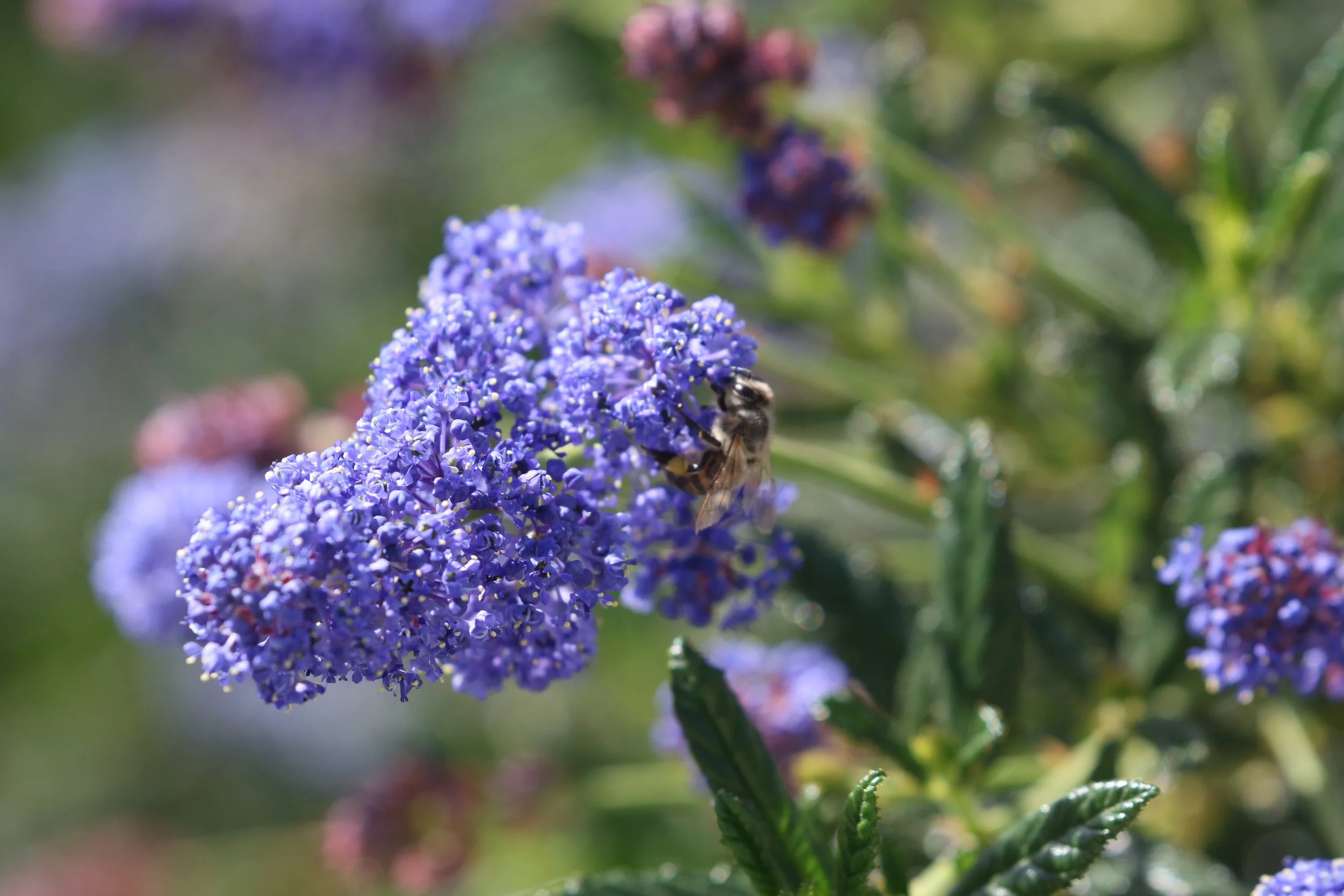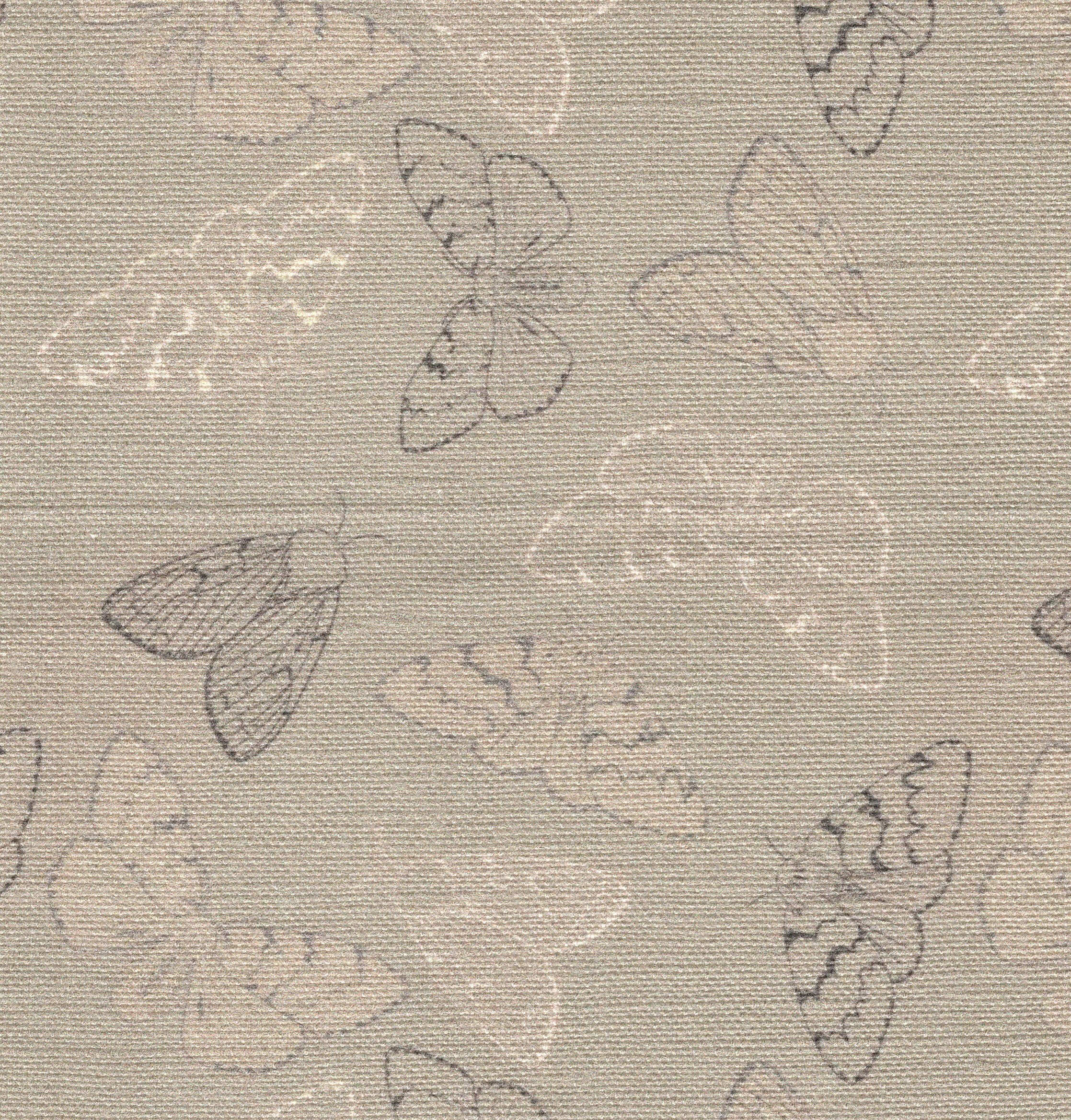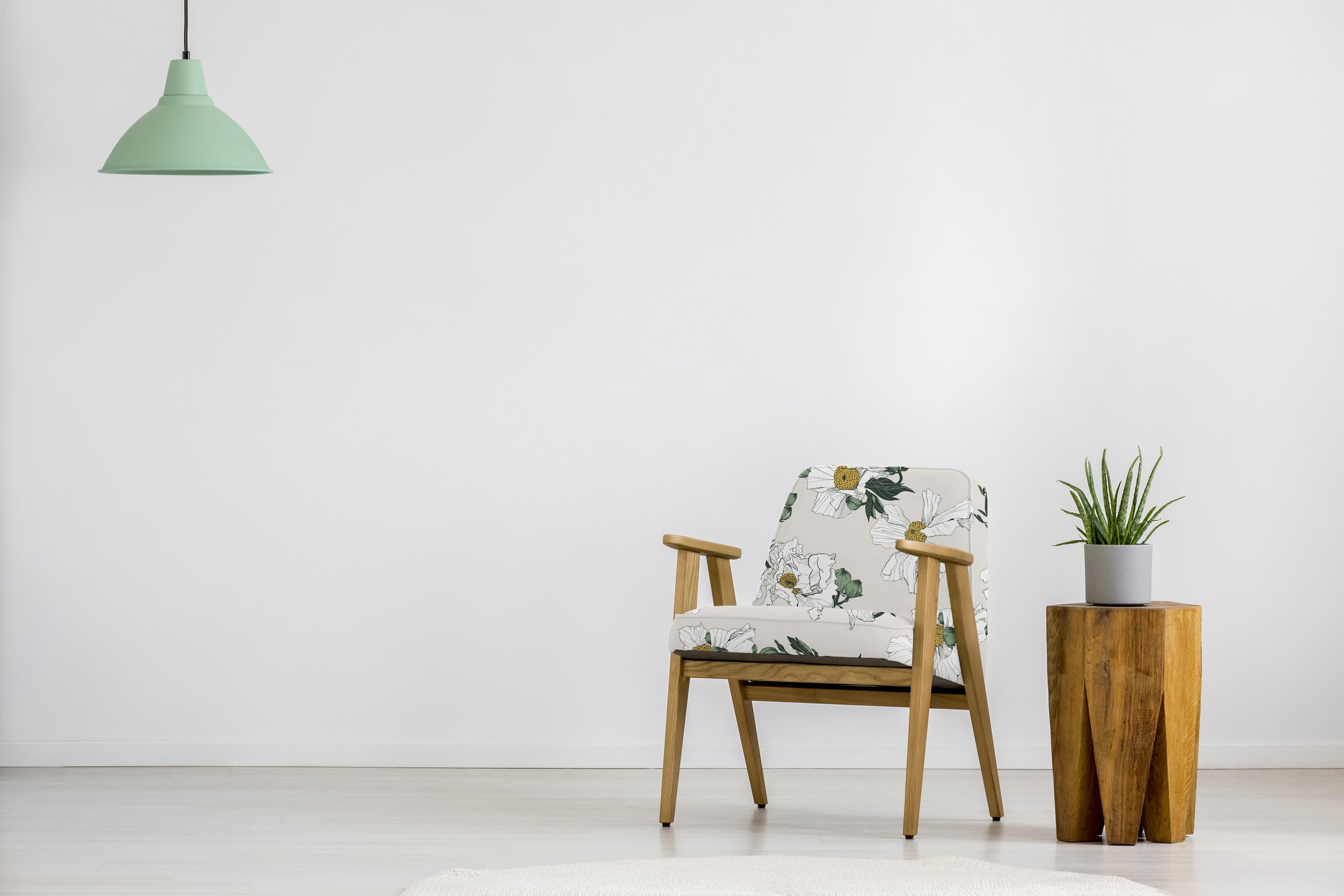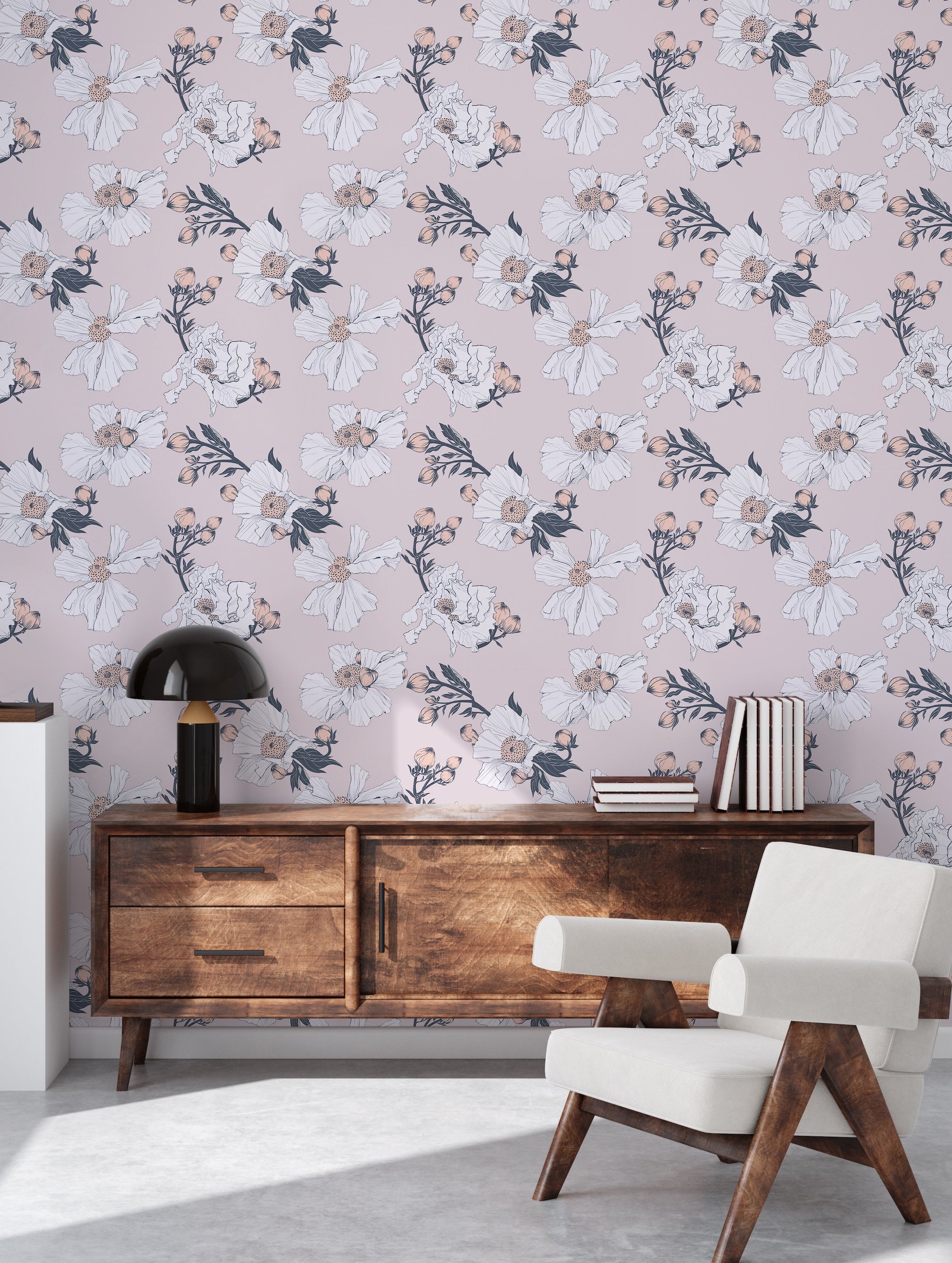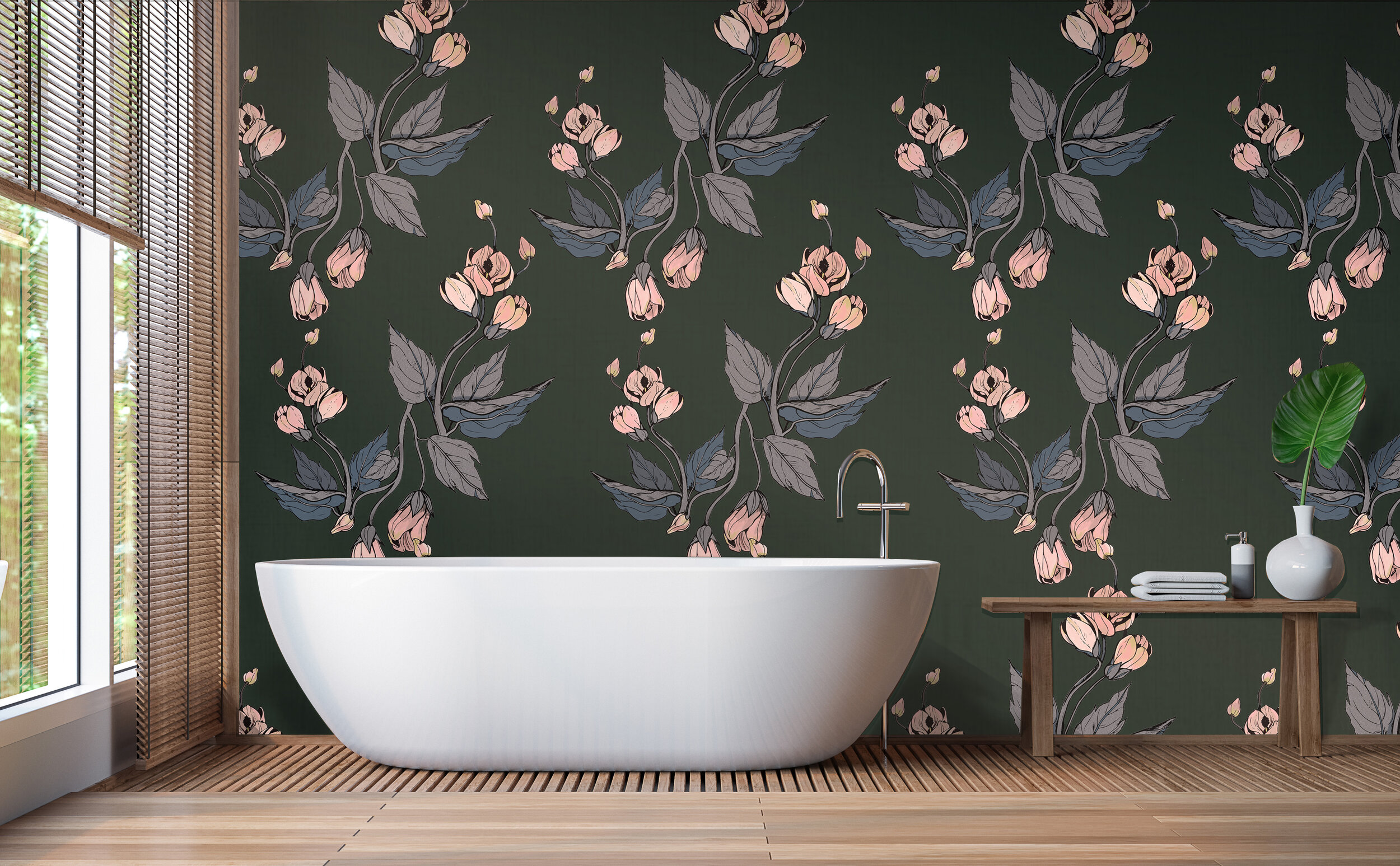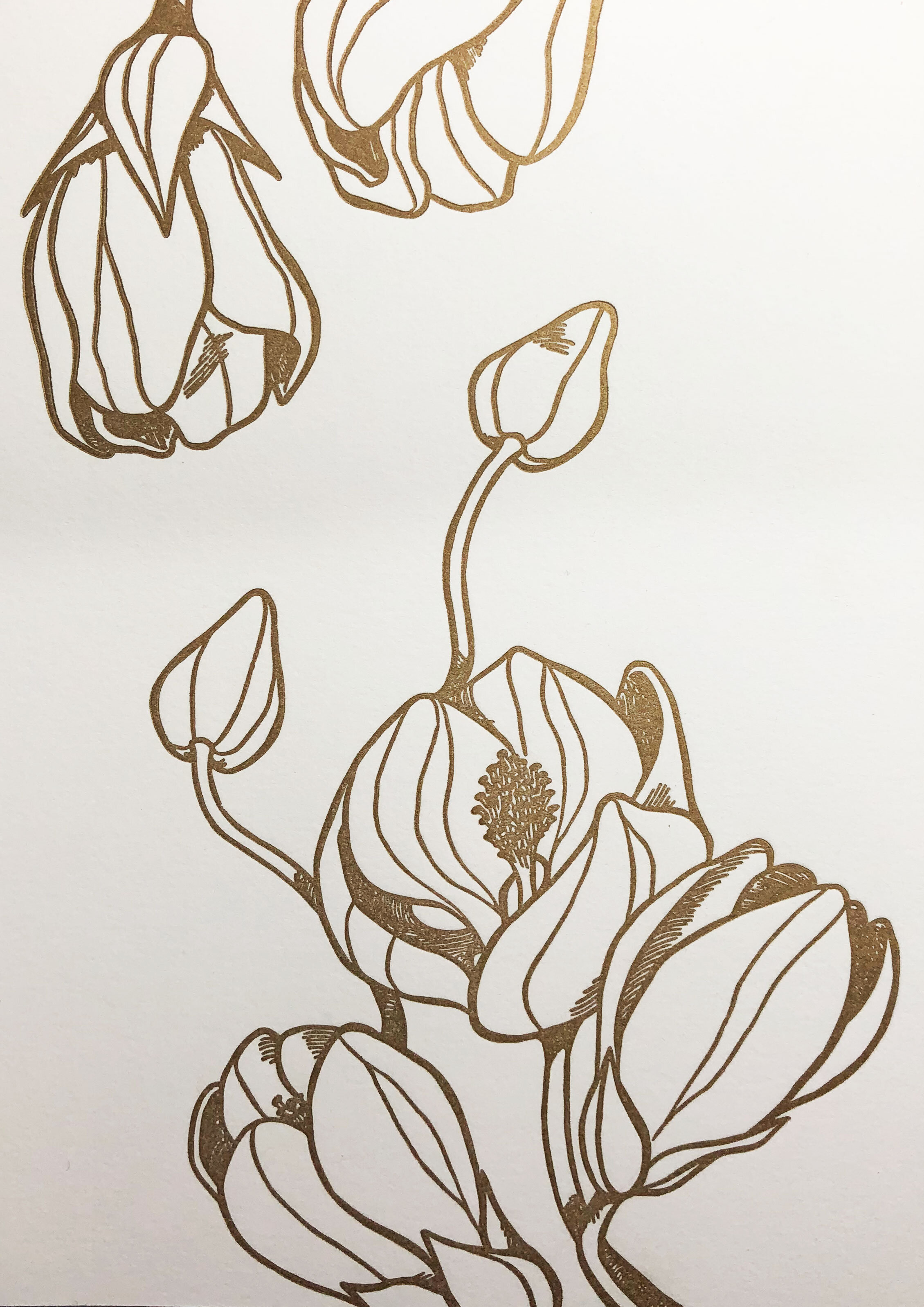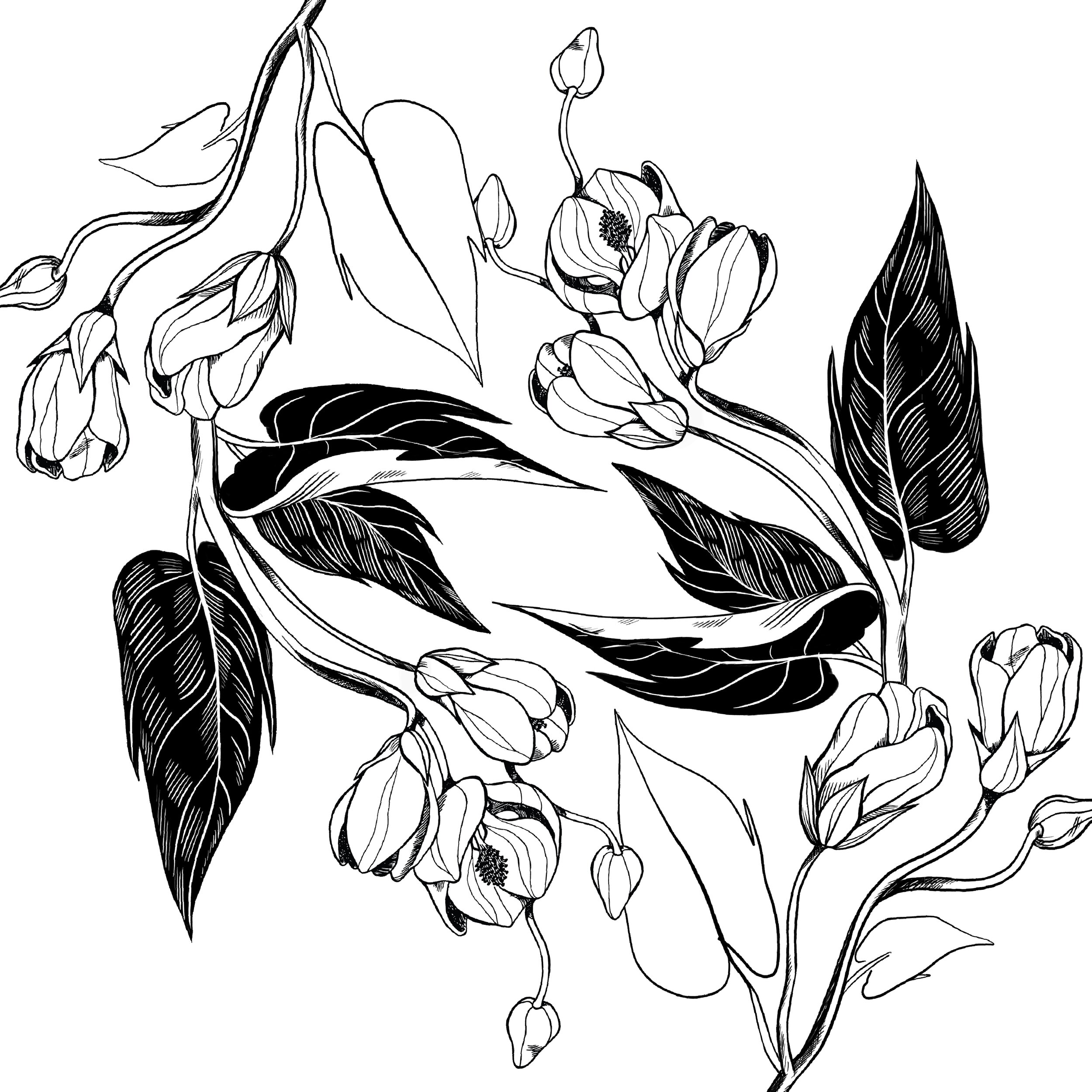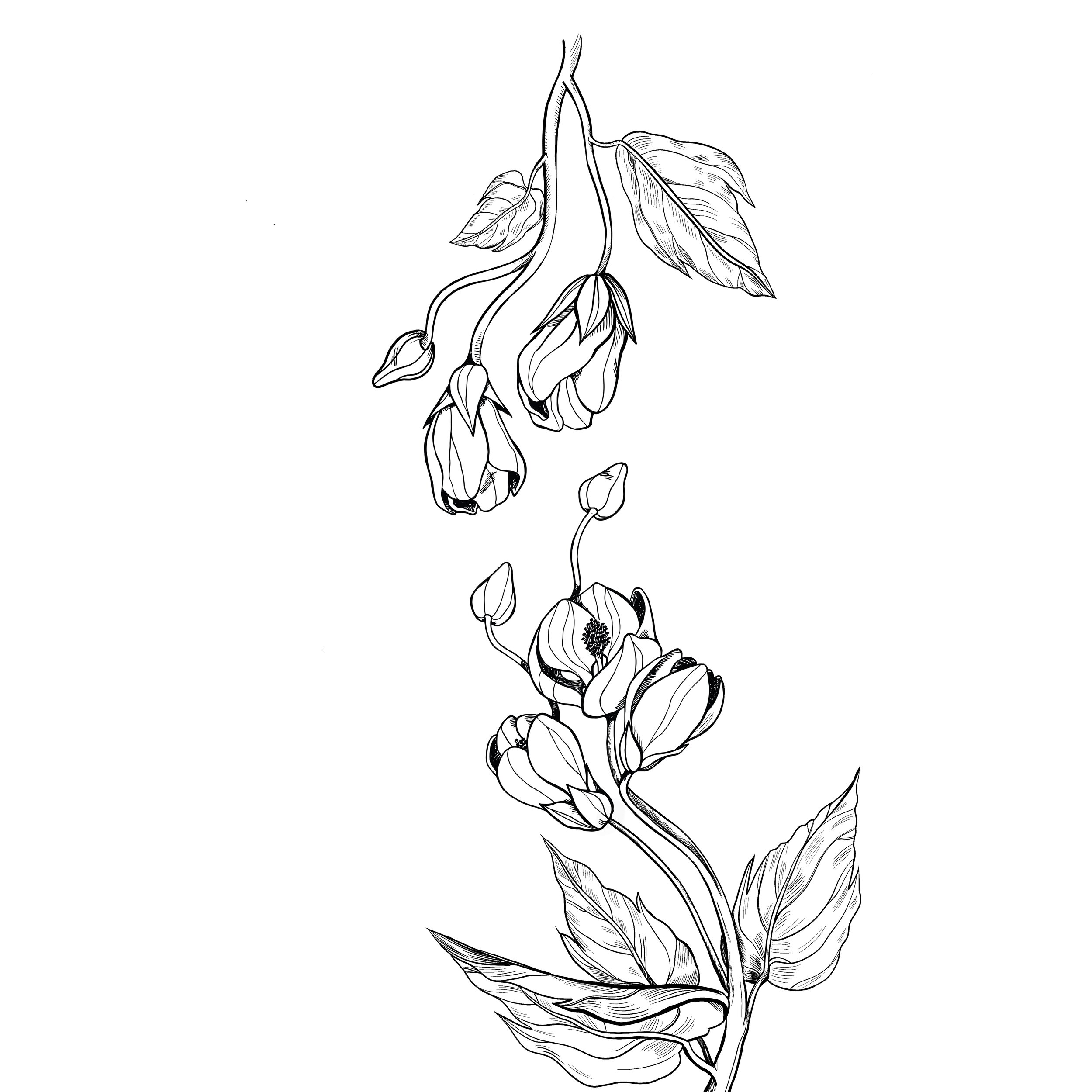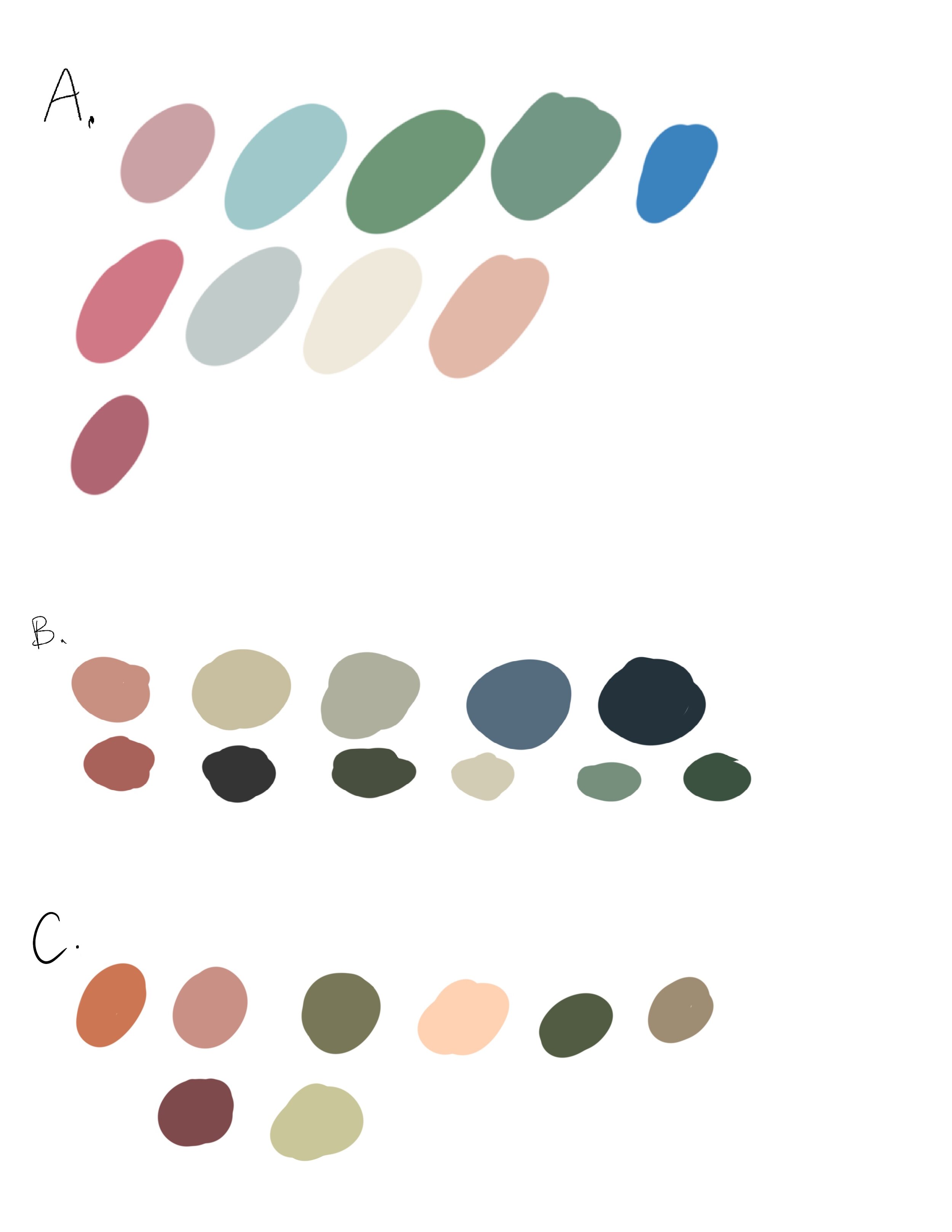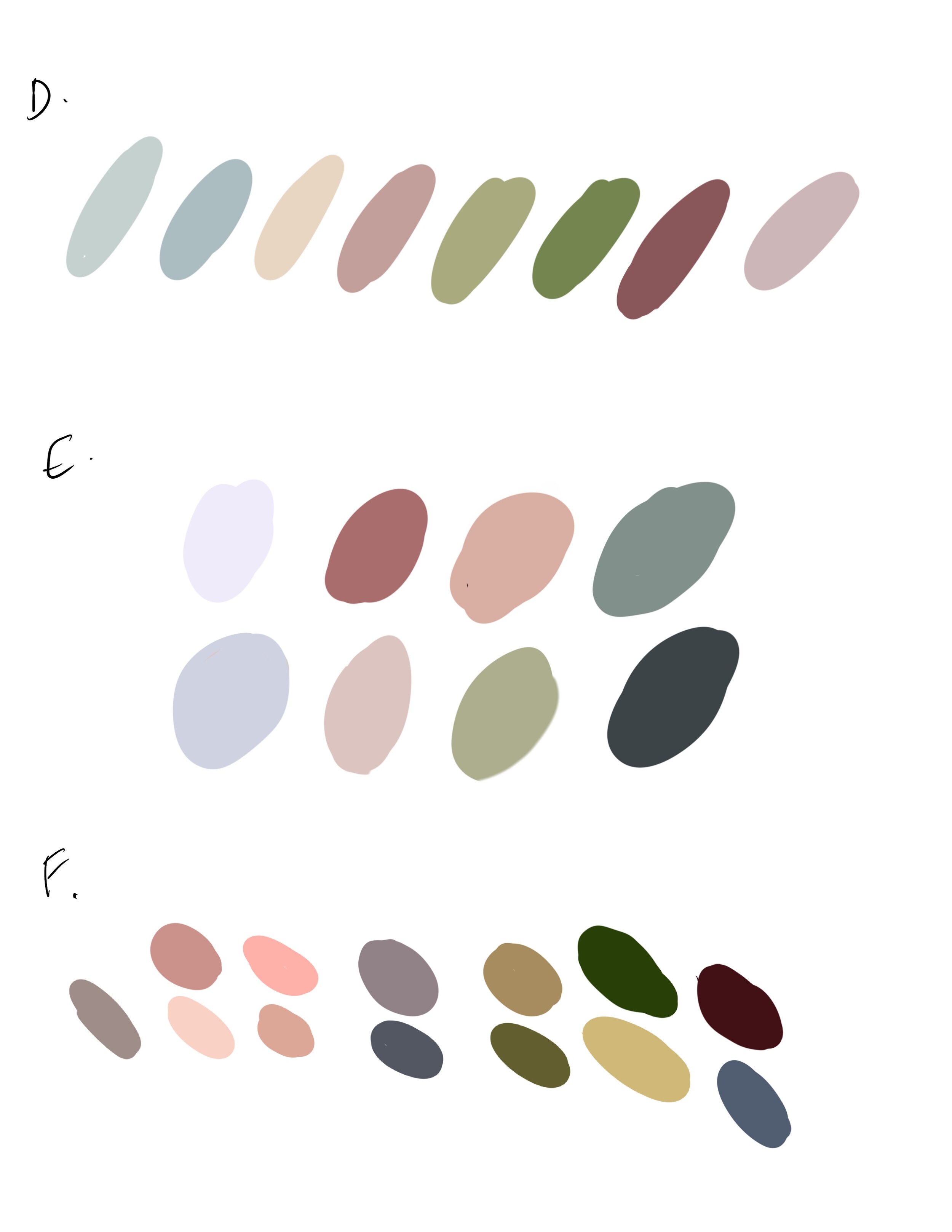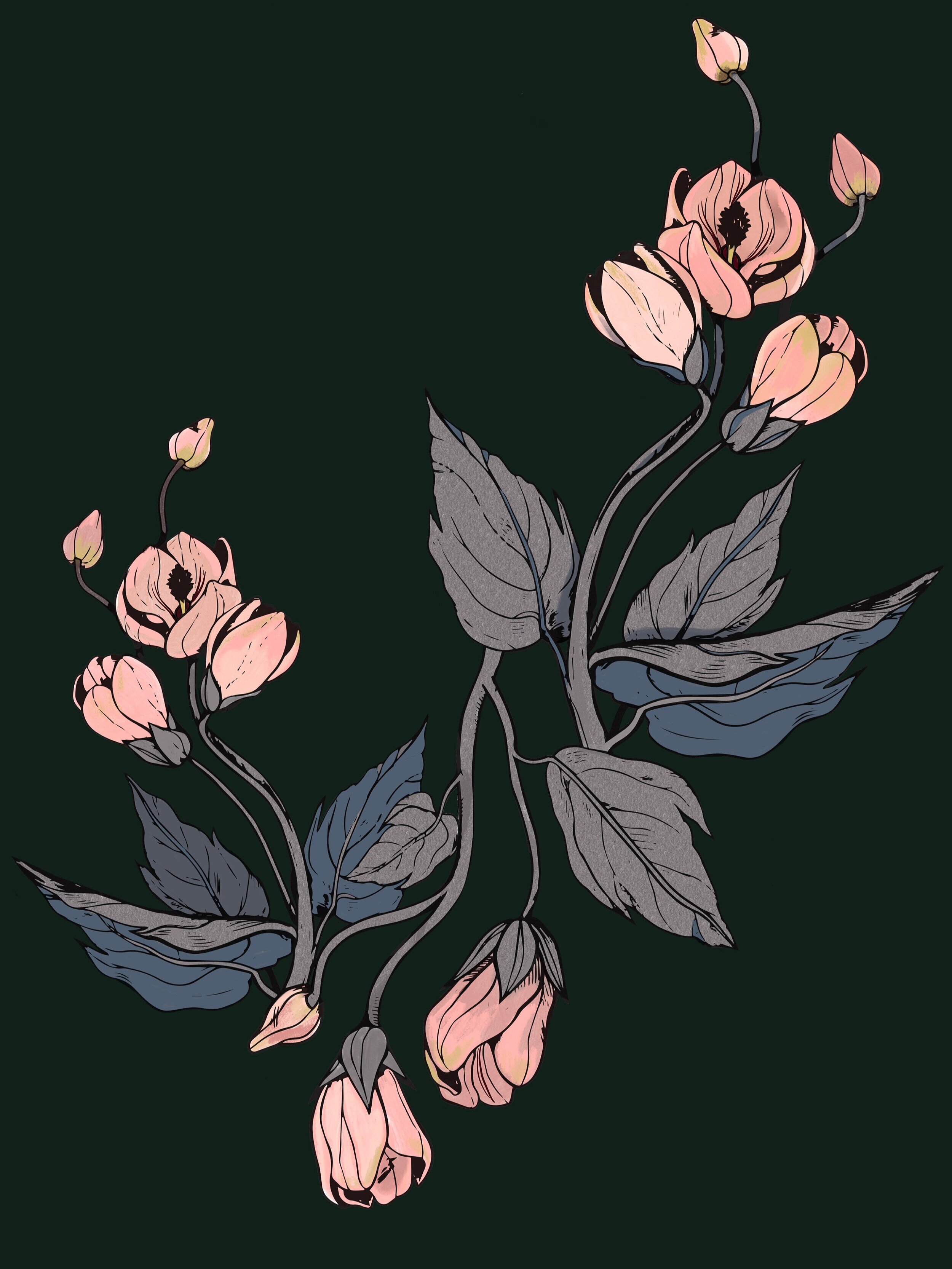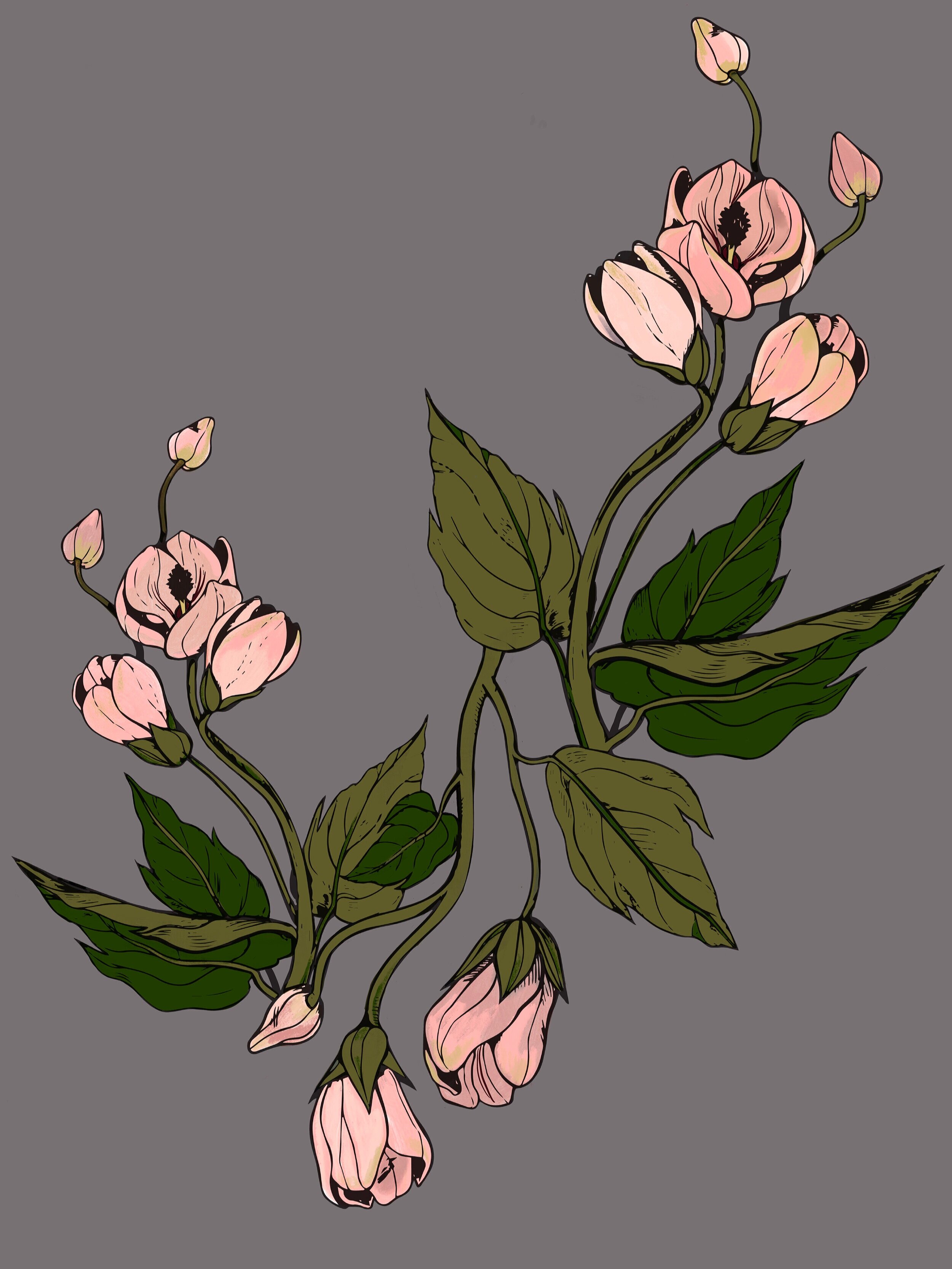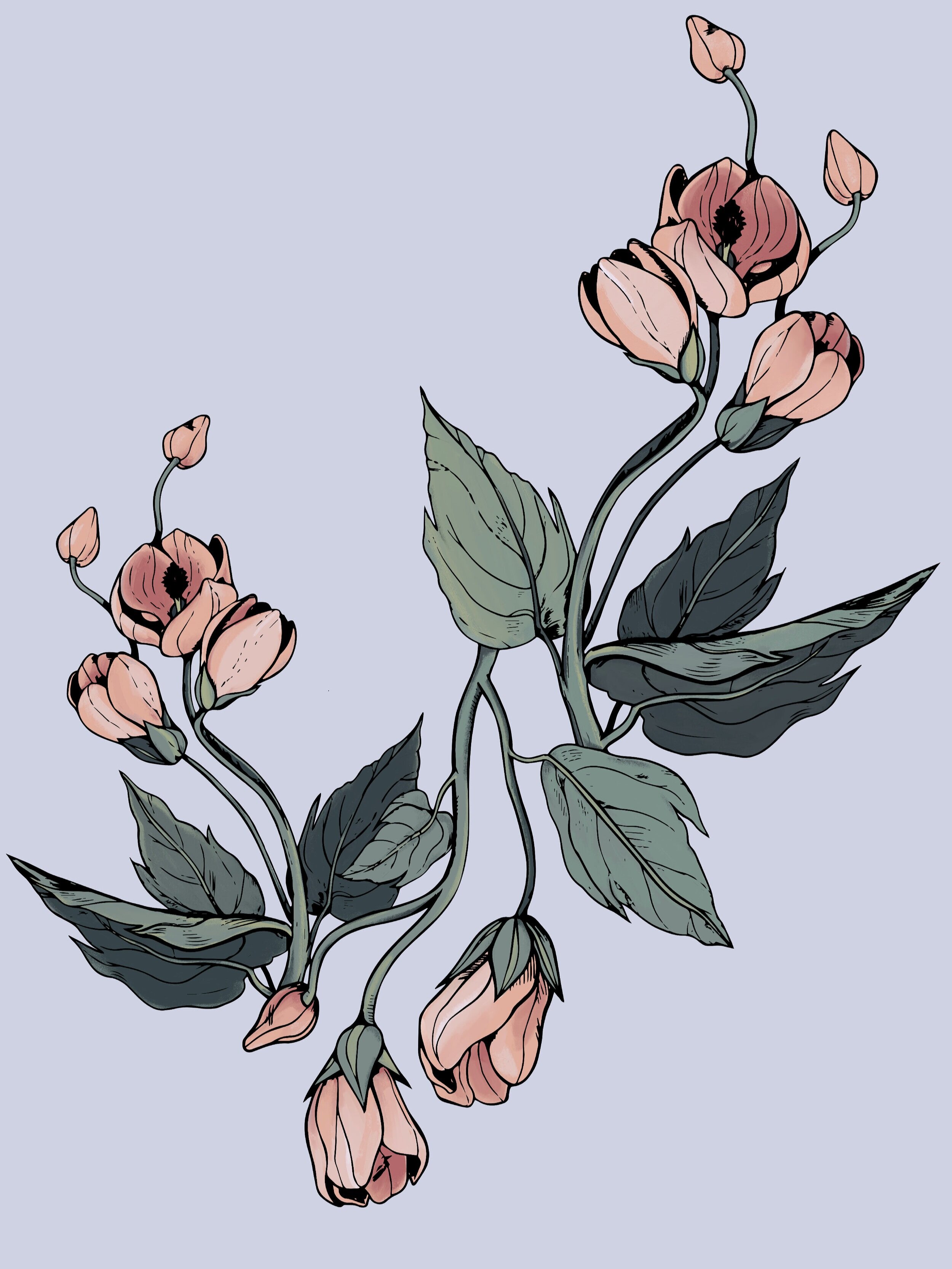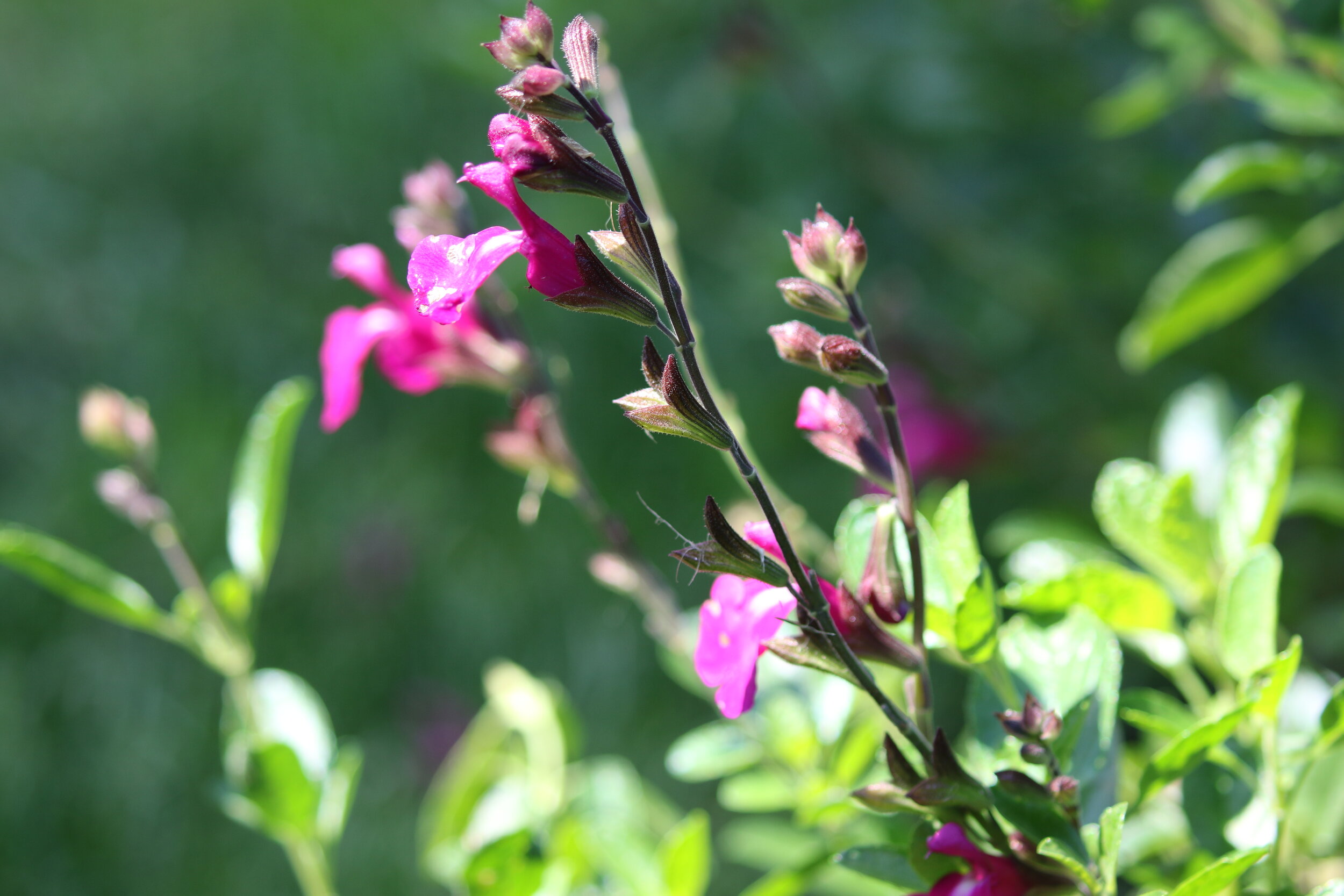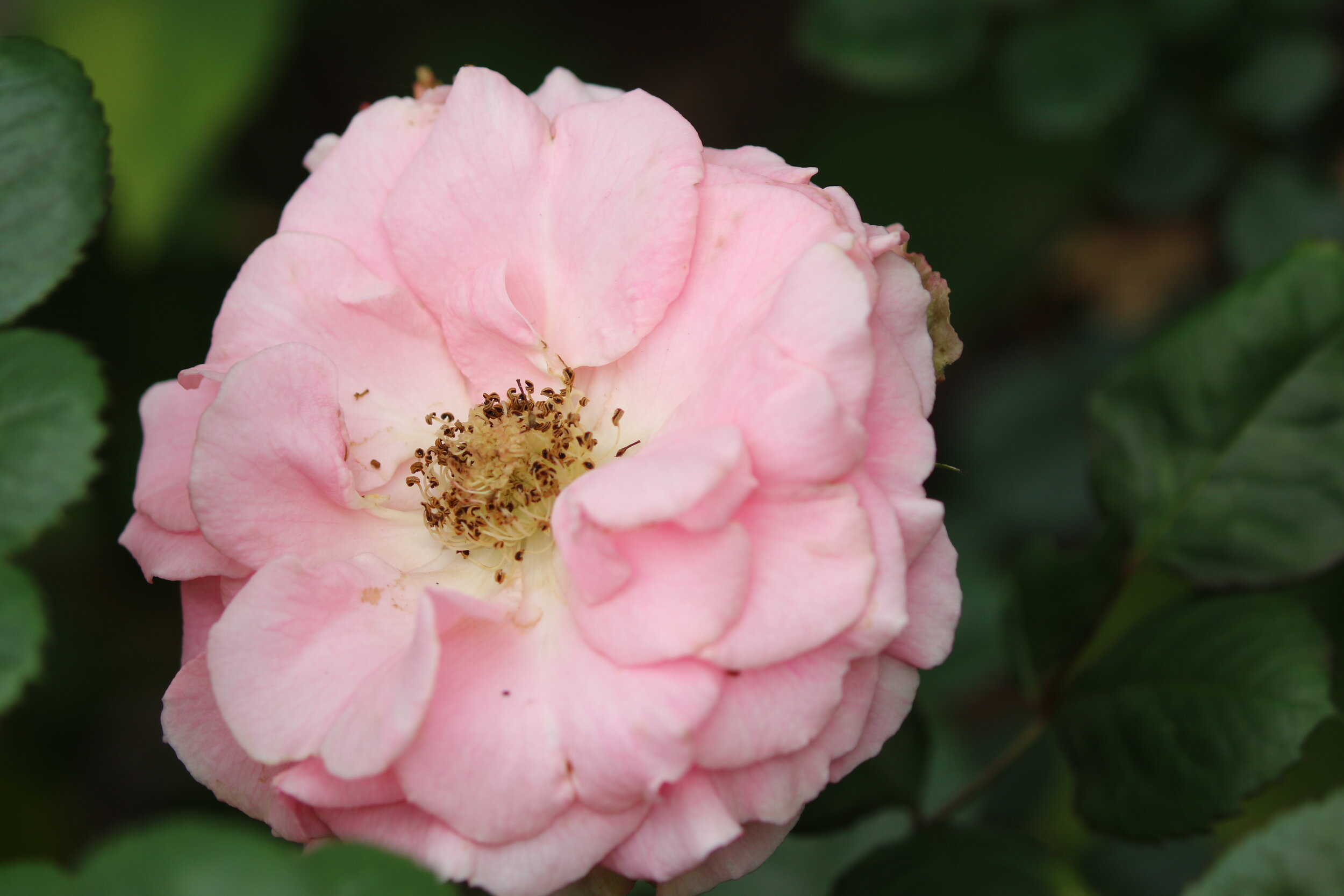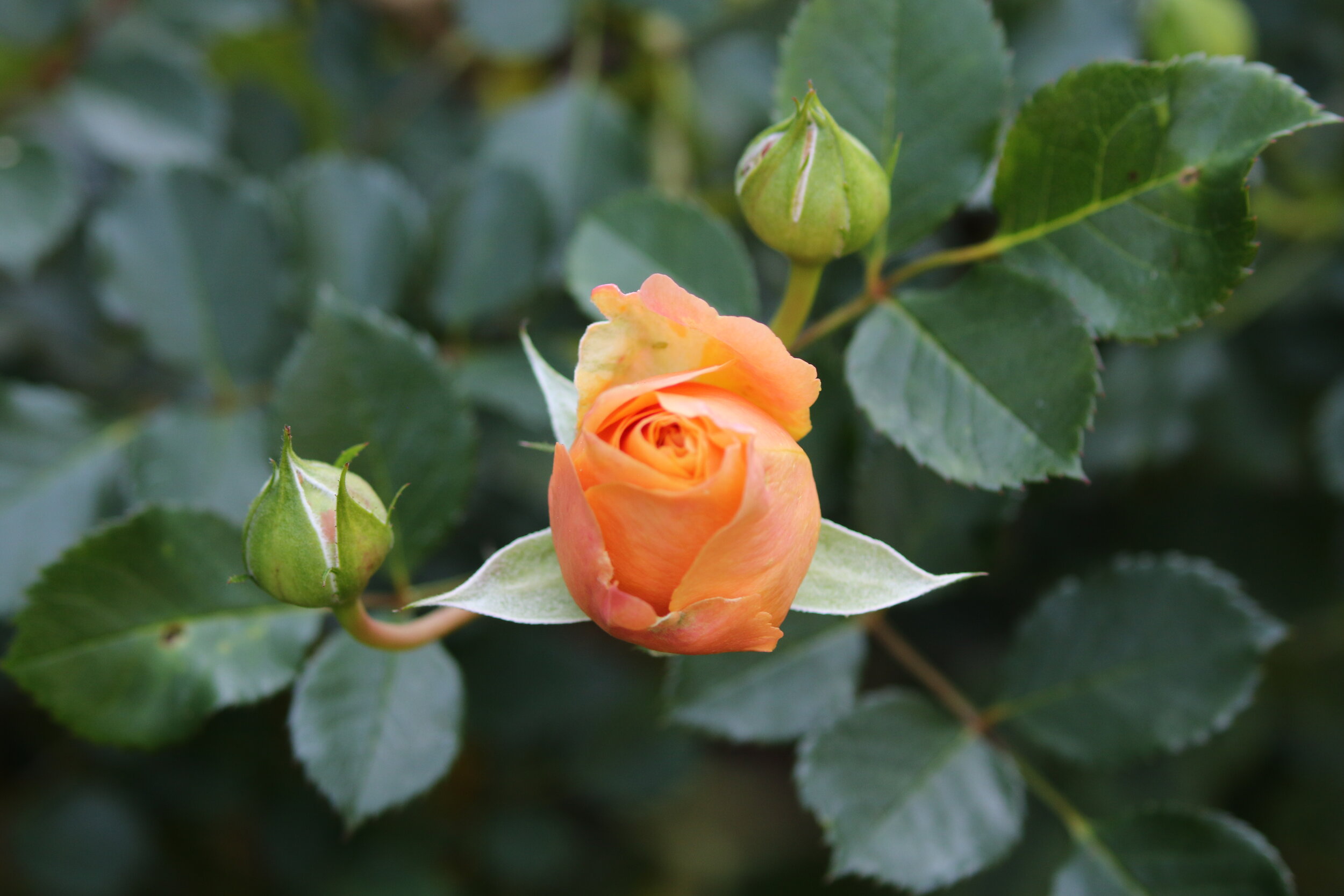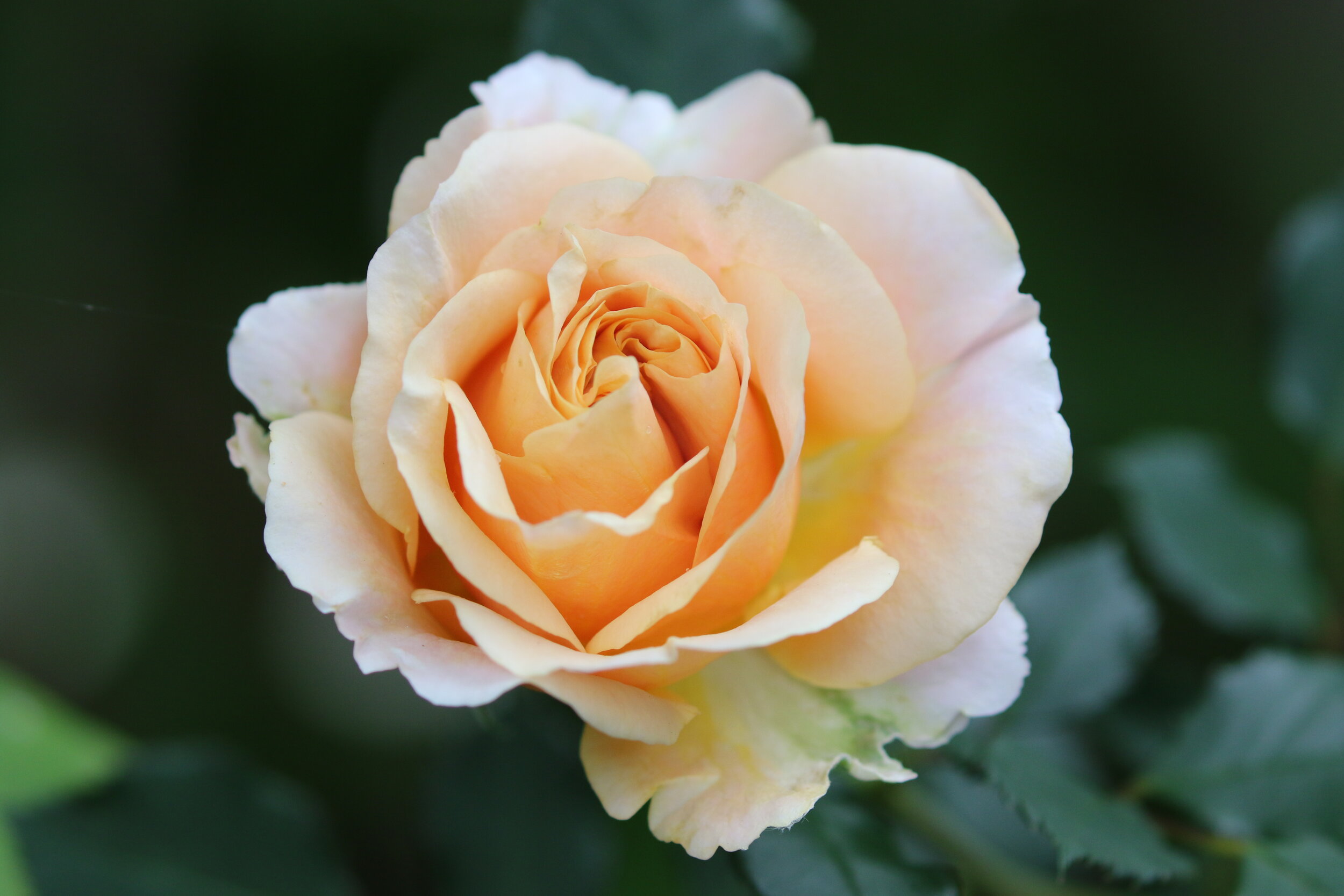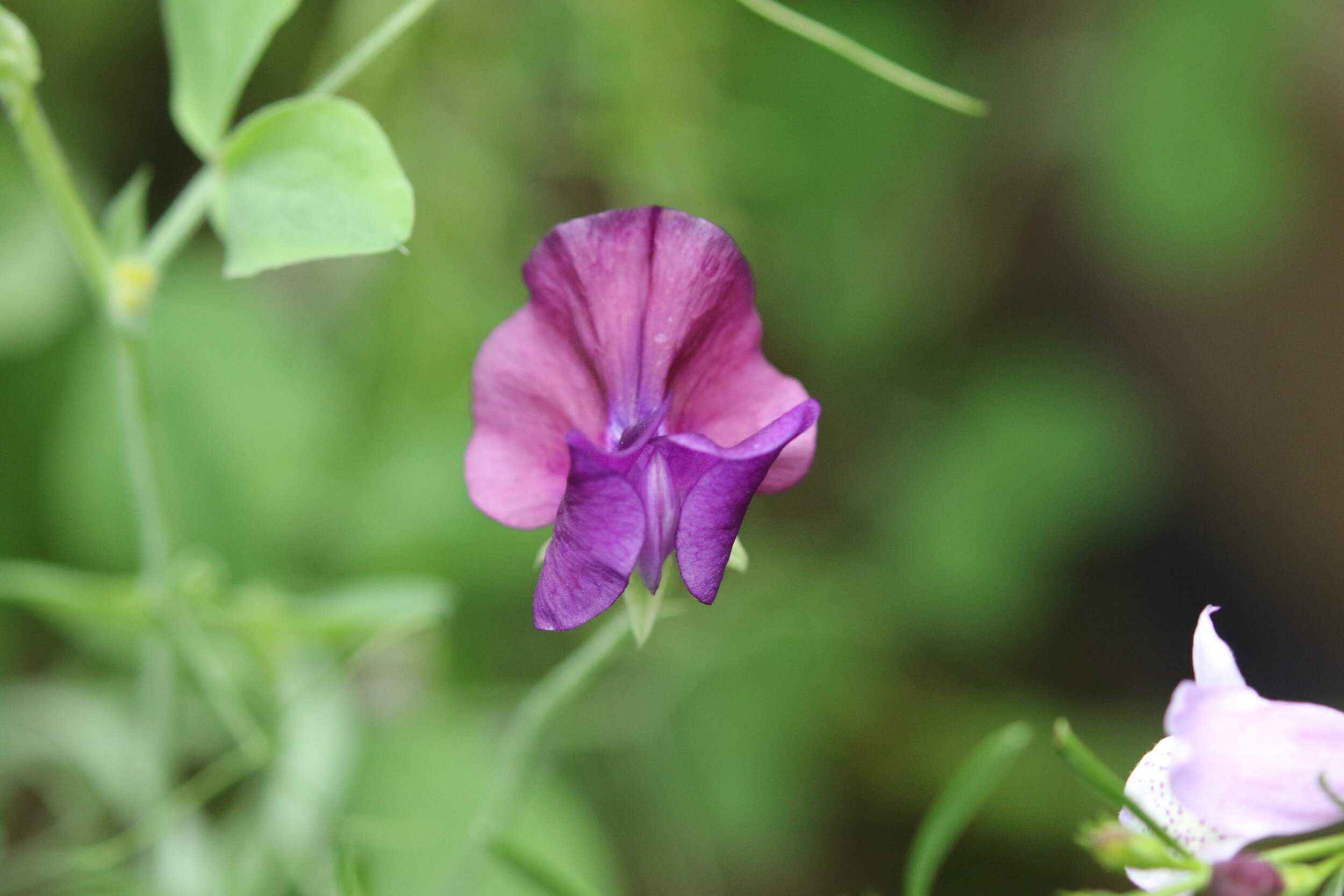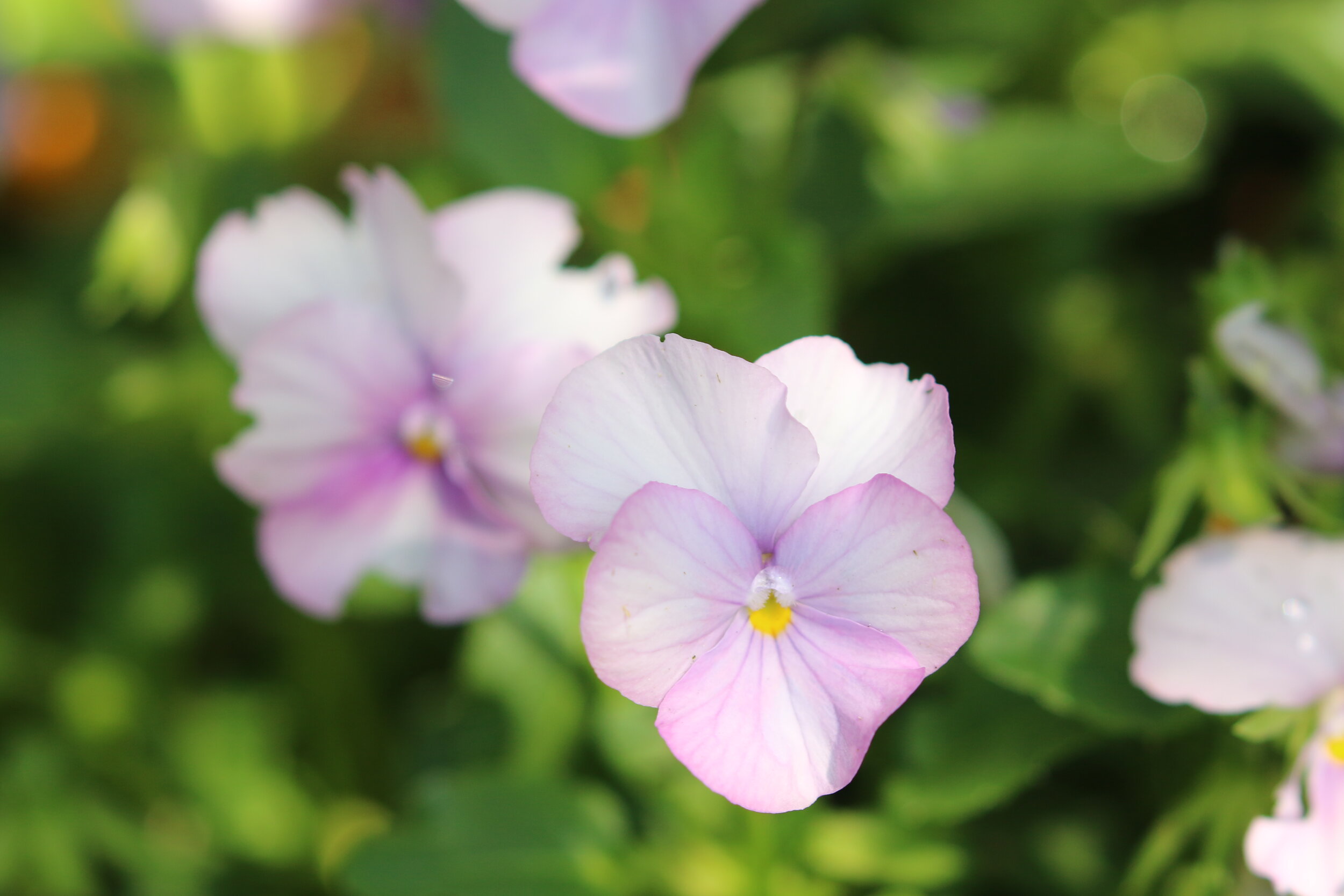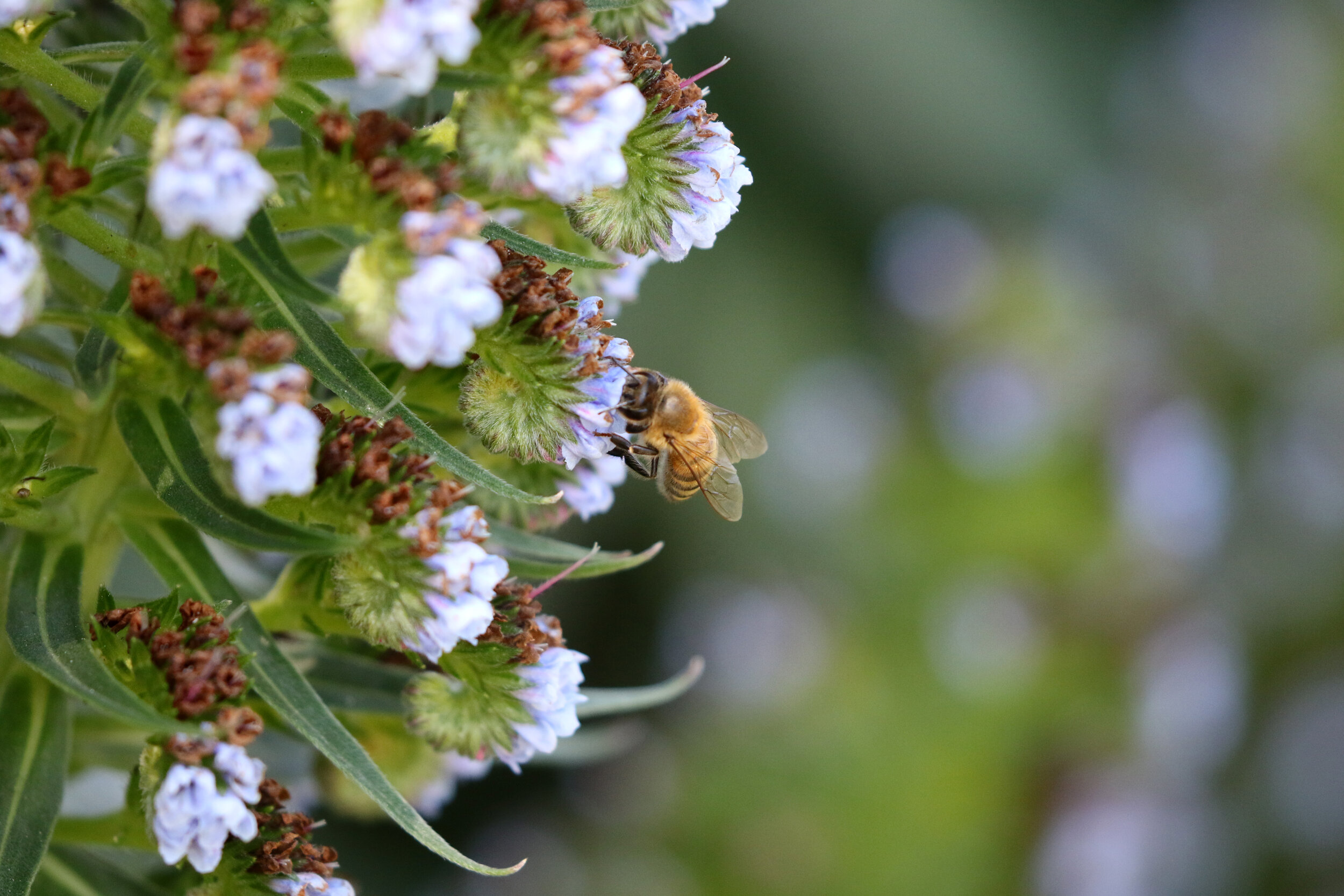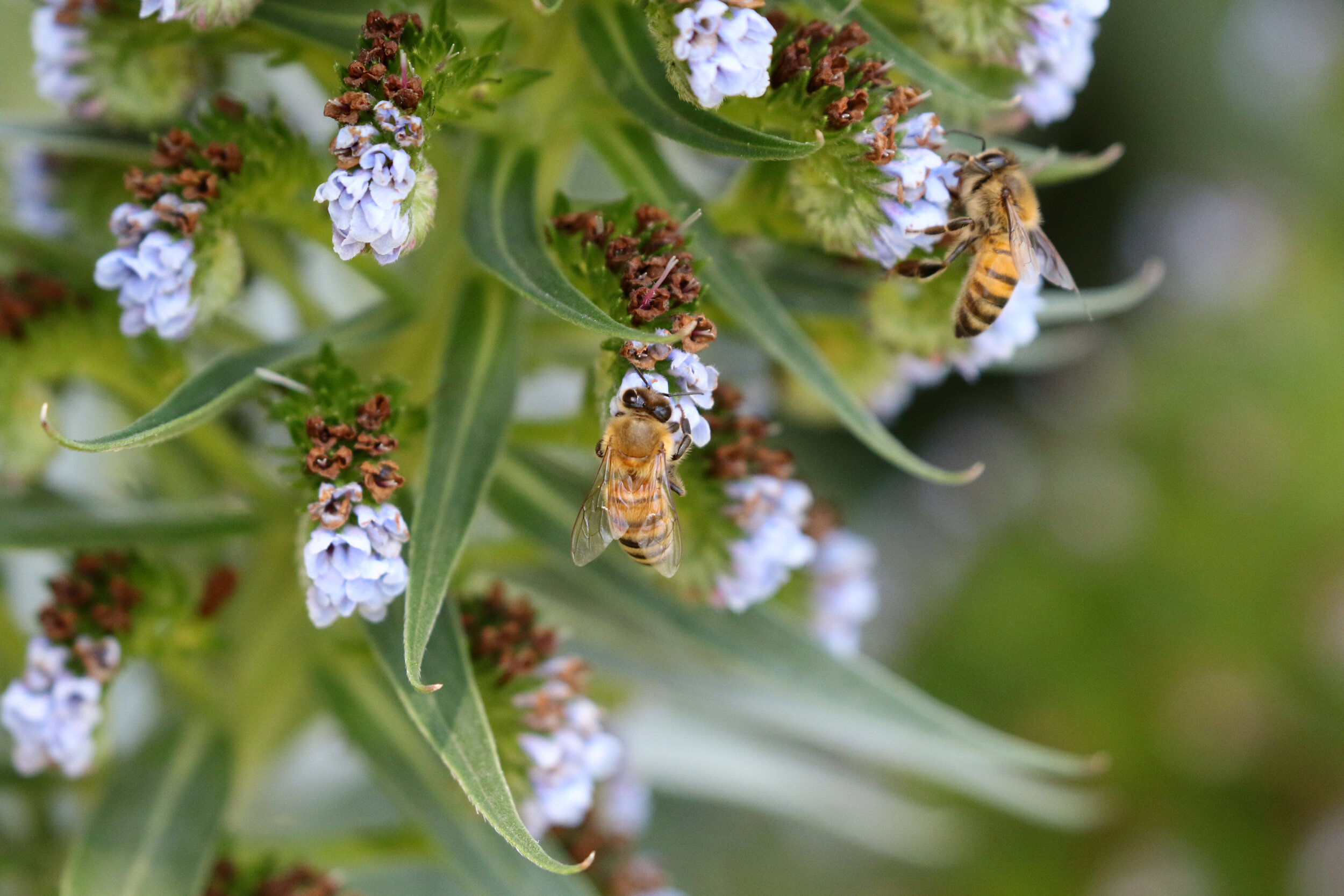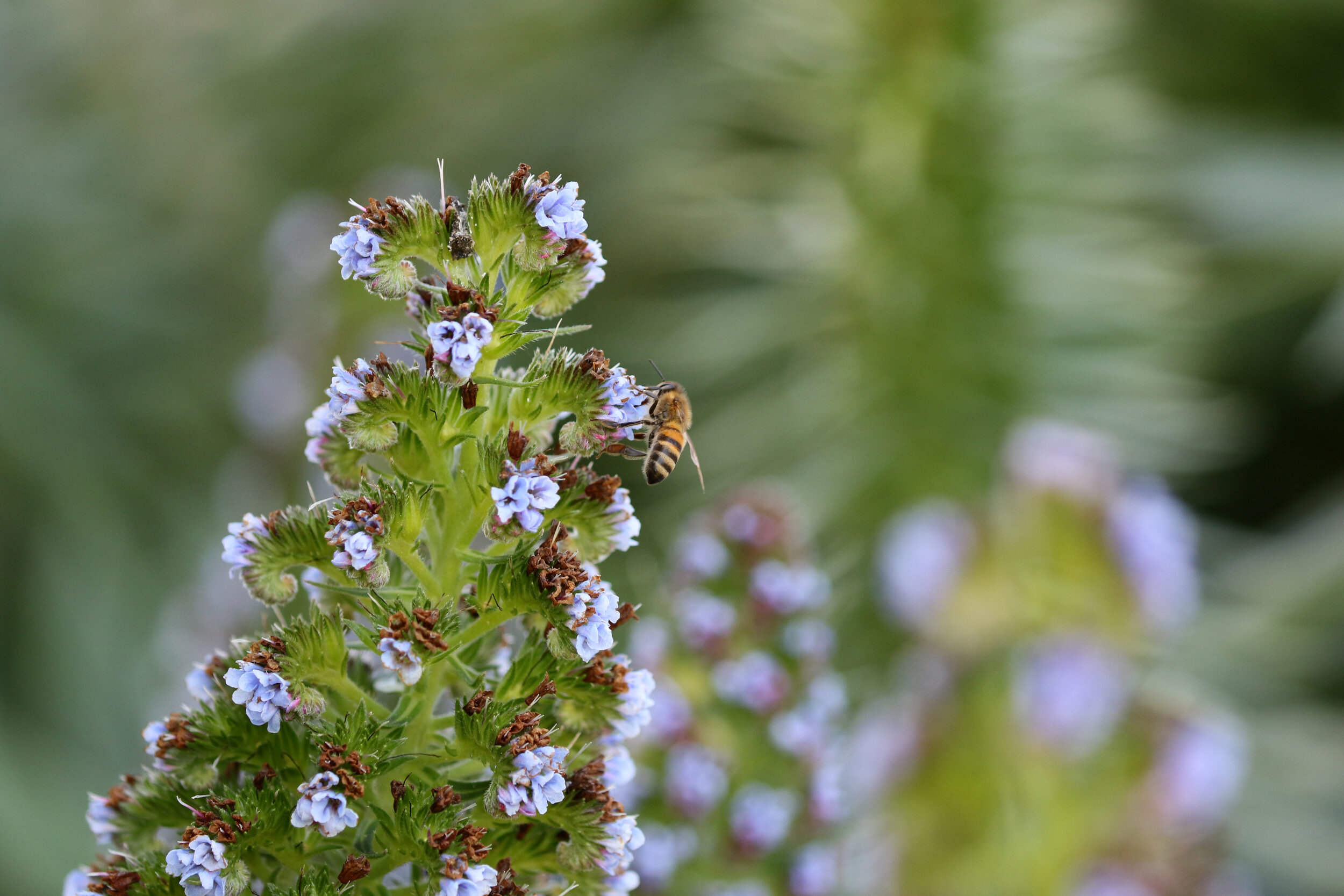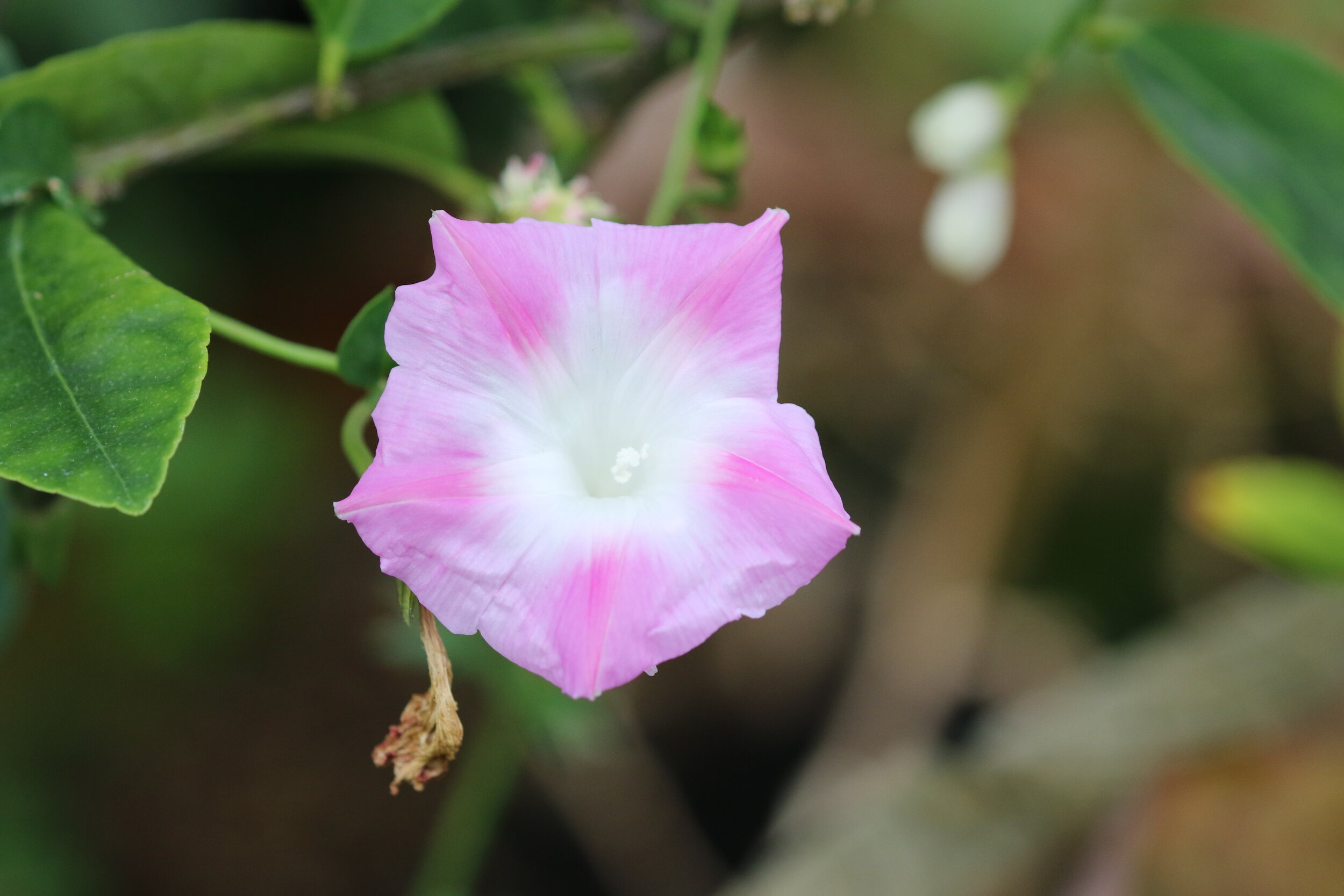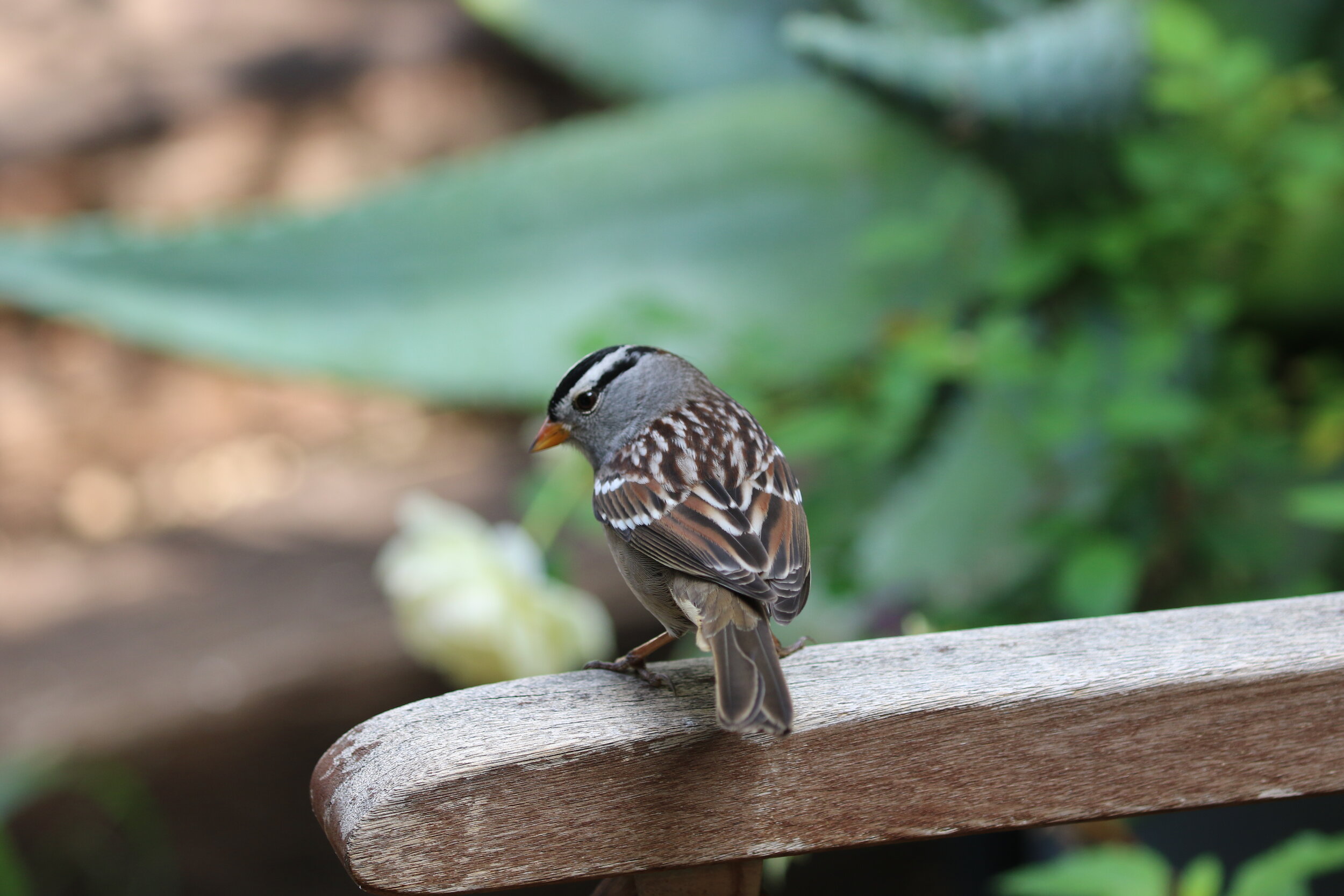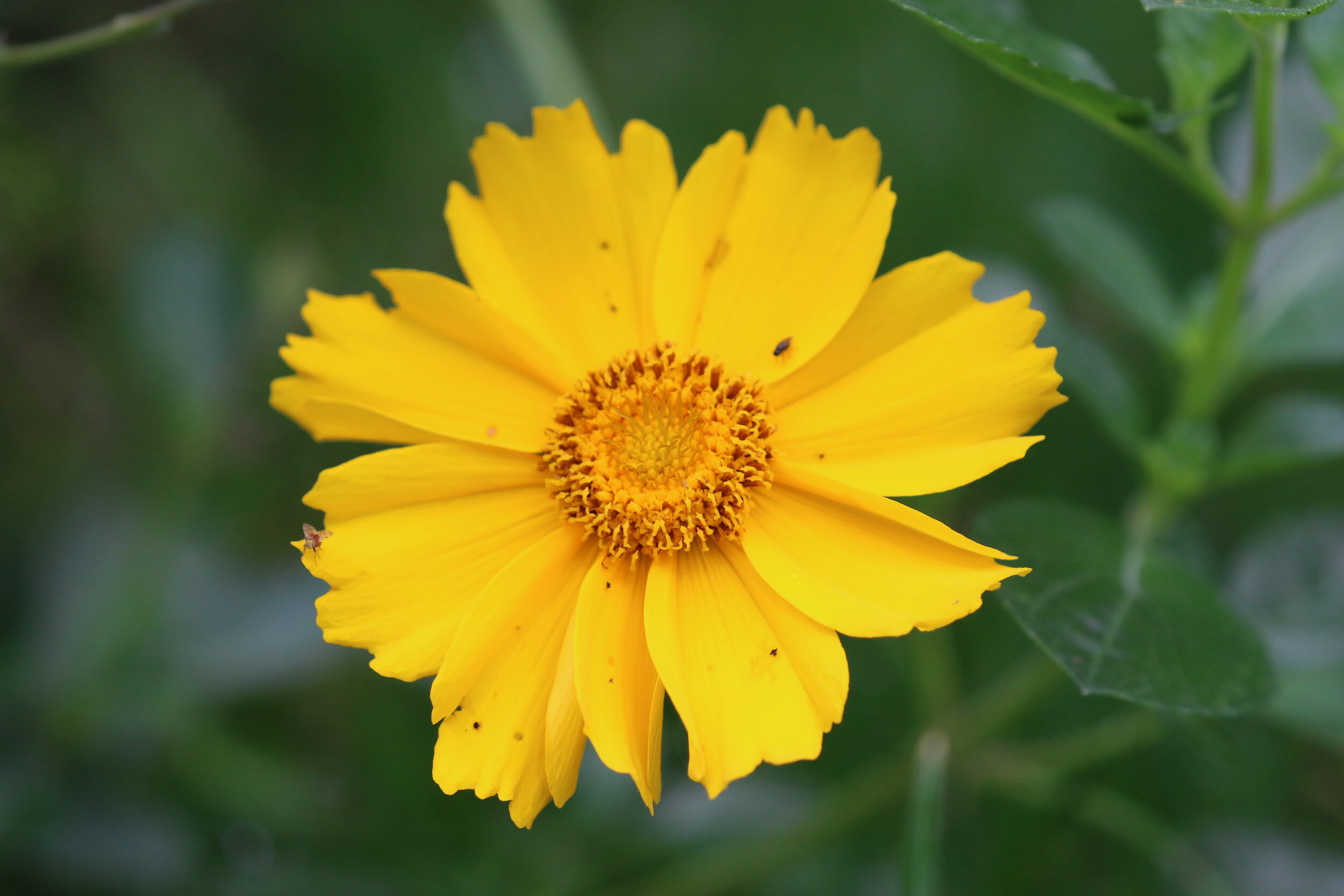Happy World Bee Day!
The UN has designated May 20th as World Bee Day to celebrate bees and highlight their essential work in the function of our ecosystem. Through pollination, bees work together with many species such as butterflies and hummingbirds to create a livable environment for all, contributing massive efforts to biodiversity and food security. Unfortunately, despite their critical role in maintaining a habitable ecosystem, the bee population is rapidly declining due to unsustainable farm practices and rising temperatures. As a team of nature enthusiasts and bee lovers, Kale Tree celebrates World Bee Day by sharing our appreciation of this incredibly hardworking and diverse insect.
Bees are an extraordinarily diverse species-- There are 30,000 different species of bee across the world, approximately 4,000 species in the United States, and over 1,500 identified bee species just in California! As such, California is home to some of the most diverse bee populations in the country, which is reflected by the state's equally large and diverse plant population.
One of the many bees you can find in California is the Apis mellifera, commonly known as a Honey Bee. Aptly named, Honey Bees are the only bee species that make enough honey to harvest. Honey Bees are highly social and are identifiable by their thick bodies and yellow or brown striped abdomens. Male Honey Bees do not have stingers, although they are typically larger than their female friends. Although Honey Bees can be found in California, they are native to Europe and pollinate in areas worldwide.
Another bee commonly found in California is the gentle Xylocopa, also known as Carpenter Bees. Carpenter bees are shiny, large, and stout in appearance and have sparse hair covering their bodies. There are three different species of Carpenter bees in California, and they tend to nest in soft, decaying woods. Carpenter bees have small mouths and typically visit larger flowers as they are easier to derive nectar.
The ever-fuzzy, stout, and large Bombus, or Bumble Bee has black hair covering their bodies with yellow, white, or red bands. There have been 27 different Bumble Bees recorded in California, and the Bombus californicus or California Bumble Bee is native to the state. Bumble Bees tend to nest underground, but some species are known to nest in abandoned bird nests or birdhouses. Bumble Bees pollinate from a broad range of plants and food sources, including avocados, cherries, and blackberries. Bumble Bees are unique in their ability to engage in "buzz pollination," in which they vibrate at a frequency required for pollen to release from plants such as tomatoes, eggplants, and peppers.
Many people think of bees as pests and take measures to deter them from gardens and outdoor activities to avoid being stung. However, bees are generally non-aggressive and can be easily identified by their compact, hairy bodies to distinguish against common stinging insects, such as wasps, who have long bodies with little to no hair. While there are thousands of bee species on Earth, many are identifiable through their branch-like hair, two pairs of wings, and "well-developed antennae."
We can support bees and their pollination efforts by creating gardens that are attractive to many species of bees. With the right plants and a little research, your garden can attract up to fifty different bee species. Flowering California native plants can be beautiful additions to your garden while helping to support bees.
At Kale Tree, we celebrate bees every day through our nature-inspired, eco-friendly home decor.
Bibliography
Frankie, Gordon W., et al. California Bees and Gardens. Heyday, 2014.
Jadallah, Christopher, et al. Common Bees in California Gardens. University of California Agriculture and Natural Resources, 2015.
“World Bee Day.” United Nations, United Nations, 2022, https://www.un.org/en/observances/bee-day.
Kale Tree + Healthy Home Decor
Butterfly Dreams Bed by Kale Tree.
Inspired by nature, fueled by community, and made with love. At Kale Tree, we aim to uplift the global community through nature-inspired home design. The source of our namesake is a beautiful, dark green shrub with kale-like curly leaves, known as Polyscias guilfoylei. This kale-like tree is resilient and hardy despite its delicate appearance. Like many of us, it takes time to grow but needs little coddling to succeed. The beauty, versatility, and self-sufficiency of this leafy evergreen aptly represents Kale Tree and our mission to promote health and well-being by strengthening our connection to nature, inside and out.
Moth Textile by Kale Tree.
Based in Southern California, we believe that our home should reflect what calms and inspires us. We find endless inspiration from the surrounding mountains, beaches, and desert landscapes. Whether it's the California native Matilija Poppy or a coastal Mangrove Tree, we extend our love of nature through thoughtful biophilic home design.
Kale Tree is comprised of nature-loving creatives who value community and personal wellness with a shared commitment to conscious, sustainable home design. Founded by WELL- and LEED-accredited interior designer and naturalist Sarah Barnard, Kale Tree aspires to improve accessibility to ethically produced, eco-friendly home decor while making the conscious effort to promote wellness through socially and environmentally responsible home design.
Matilija Poppy Textile - Natural by Kale Tree.
We believe that individual wellness is directly connected to nature. Biophilic home decor has the potential to evoke similar mood-boosting effects to spending time outdoors. Our studio understands the importance of uplifting the well-being of each other and places equal value on lasting environmental health. Working from a cosmopolitical standpoint, we aim to uplift our community through closeness to nature by designing our products with conscious intent, considering the environment at every stage of our production process.
Mallow Textile in Dusty Dawn by Kale Tree.
Natural and Organic Fibers
Natural fibers provide a unique tactile experience and biodegrade more naturally over time. Kale Tree offers products made from natural and organic materials, including textiles made from Belgian Linen, New Zealand Wool rugs, and furniture made from sustainable hardwoods.
Mangrove Rug by Kale Tree.
Vegan Choices
As naturalists and animal lovers, we understand the importance of choosing products that align with your values. All of our area rugs are available in Bamboo Silk, a vegan fiber with a soft sheen derived from bamboo plants. Our textiles and wallpapers are made from cruelty-free plant-derived materials.
Mallow Wallcovering in Midnight Forest by Kale Tree.
FSC certified Hardwoods
Our furniture is handcrafted in Los Angeles from Forest Stewardship Council (FSC) hardwoods. FSC certification ensures that the hardwoods we use are sourced in an environmentally responsible manner to help support sustainable forest management.
Matilija Poppy Wallpaper - Putty by Kale Tree.
Greenguard Gold Certified
We believe that a healthy home is a happy home. Kale Tree's PVC-free, low-VOC wallcoverings help maintain healthy indoor air quality and are Greenguard Gold Certified.
California native Lupine and Salvia. Photo by Sarah Barnard.
Kale tree works closely with a team of like-minded artists, designers, and artisans from diverse backgrounds to create healthful, ethically produced goods inspired by the intersection of art, design, and nature. All goods are made with love and designed with the intent to bring beauty, health, and joy to you and your home.
Wallflower: A lesser-known floral blossoms into its moment with a new eco wallpaper
Kale Tree Founder Sarah Barnard is an advocate of all things nature. “Being in nature brings me great pleasure, and is the source of inspiration for much of my work,” says Barnard. “Setting aside time to enjoy and plant in my garden helps me decompress, and fully engage mentally and physically outside of my design practice.
Kale Tree Founder Sarah Barnard is an advocate of all things nature. “Being in nature brings me great pleasure, and is the source of inspiration for much of my work,” says Barnard. “Setting aside time to enjoy and plant in my garden helps me decompress, and fully engage mentally and physically outside of my design practice. After gardening, I feel re-energized, focused, and ready to return to work.” One of Sarah’s favorite plants is Mallow. She has three different varieties that she tends to in her garden.
Mallow is a free-flowering plant that blooms beautifully draping, lantern-shaped blossoms of all varieties of pinks, yellows, reds, and whites. There are about 200 species in this particular genus. Also referred to as the Flowering Maple, Chinese Lantern, and Indian Mallow, this shrub earned its names from its maple-like leaves, lantern shape flowers, and mallow genus. These shade-loving plants are delicate, requiring regular care and maintenance. This effort can be fruitful; however, as a happy Mallow can flower almost non-stop. These stunning plants are pollinator-friendly, attracting hummingbirds, butterflies, and bees alike[1].
While most commonly planted for ornamentation in gardens, the Mallow has qualities that benefit health and well-being. Some Mallow species have a history of medicinal uses for emollient, analgesic, anti-diabetic, and anti-inflammatory purposes, to name a few[2]. Their flowers produce nectar, making them slightly sweet and astringent[3]. Floriography, the language of flowers, suggests that Abutilon symbolizes Meditation[4].
Out of pure adoration of this plant, Kale Tree created a line of botanical wallpapers inspired by the Mallow.
The line drawing for the wallpaper began as the annual letterpress holiday card for Sarah’s interior design studio. The Kale Tree team reworked and expanded the original illustration into a pattern for wallpaper and textiles. Photographs of Mallows in Sarah’s garden were used as references to develop the drawing. Kale Tree designers chose to render the Mallow in a larger than life scale to highlight their extraordinary beauty and bring a contemporary feel to the notion of traditional floral wallpaper. The color palette was adapted from Victorian Era paintings as a nod to art history, marrying classical with contemporary. Pink is utilized generously throughout the illustrations as it happens to be one of Sarah’s favorite colors. “Clients seldom choose to incorporate pink into their spaces, so Kale Tree is my outlet to explore and indulge in this color,” says Sarah.
Kale Tree’s eco-friendly wallpaper features a subtle surface texture and a hand-drawn pattern. It is available in three colorways: Midnight Forest, Evening Mauve, and Dusty Dawn. Designed with nature in mind, this product is a PVC-free, type II wallpaper made with 31% post consumer, recycled canvas, and printed with a VOC-free process free of solvents. The wallpaper is 33 inches wide by 18 feet long and is sold per 49.5 square foot roll. Kale Tree aims to promote health and wellbeing through introducing our healthful, ethically produced goods inspired by the intersection of art, design, and nature.
You can pre-order for Spring 2021 here.
References
[1] Mahr, Susan. “Flowering Maple, Abutilon Spp.” Master Gardener Program, 5 Aug. 2020, mastergardener.extension.wisc.edu/article/flowering-maple-abutilon-spp/.
[2] Rajeshwari S, Sevarkodiyone SP (2018) Medicinal properties of Abutilon Indicum. Open J Plant Sci 3(1): 022-025. DOI: 10.17352/ojps.000011.
[3] “Abutilon Striatum (Red Vein Indian Mallow).” Gardenia.net, www.gardenia.net/plant/abutilon-striatum.
[4] Deitz, S. Theresa. Floriography Today: The Symbolic Meanings & The Possible Powers of Trees, Plants and Flowers. 2012.
Views from the Garden: Hibiscus, Roses, Birds + Bees
Hibiscus has always been one of my favorite flowers, with its colorful voluptuous blooms. What began as a tiny one-gallon pot is now (years later) a magnificent bush, a bit taller than me.
HIBISCUS ROSA-SINENSIS “CREOLE LADY” . LOS ANGELES, CA.
Hibiscus has always been one of my favorite flowers, with its colorful voluptuous blooms. What began as a tiny one-gallon pot is now (years later) a magnificent bush, a bit taller than me. Garden roses are one of my simplest delights. The fragrance of roses inspires cheer in my southern California garden nearly all year round. Spending a bit of time outdoors each morning helps me to feel connected to the outside world.
A COMMON HOUSE SPARROW FINDS A TASTY NUT. LOS ANGELES, CA
Visiting birds and bees remind me that life is in fact carrying on, no matter the state of my day, or the world at large.
ECHIUM CANDICANS, PRIDE OF MADEIRA, A FAVORITE OF THE VISITING BEES. LOS ANGELES, CA.
A CARPENTER BEE VISITS THE SENNA FLOWERS. LOS ANGELES, CA.
